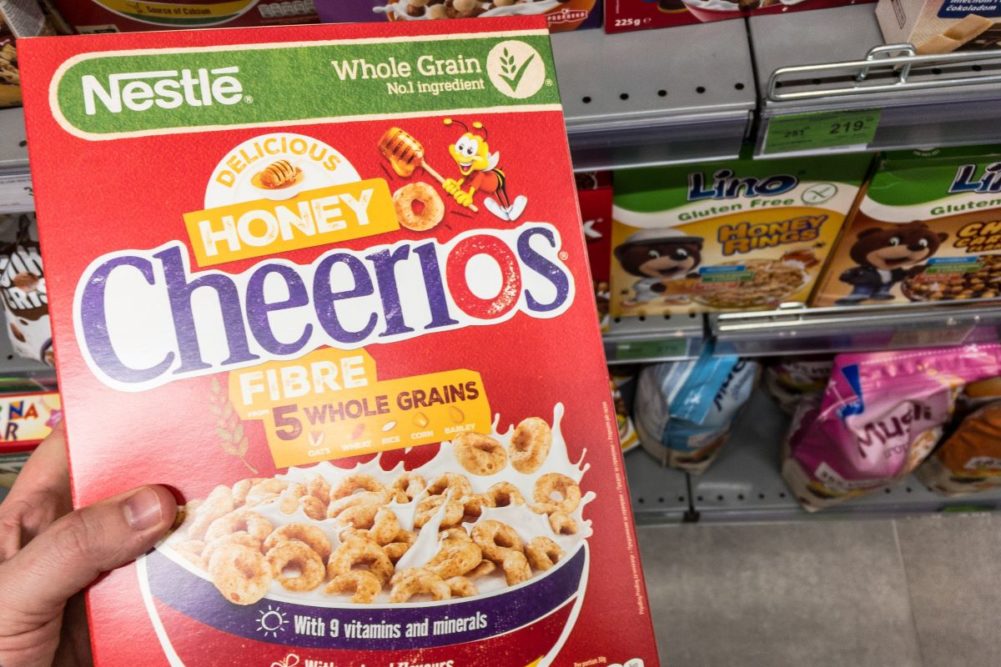VEVEY, SWITZERLAND — Cereal Partners Worldwide (CPW), the makers of Nestle breakfast cereal, has unveiled its 2050 Net Zero Roadmap, which it claims will be used to halve its greenhouse gas emissions by 2030 and reach net zero by 2050.
According to CPW, the roadmap comes from an external consulting firm called Quantis, which took note of the total emissions across CPW as part of a large-scale audit that involved working with many employees and affiliates, including farmers and logistics providers. The audit determined that CPW emitted 1.2 million tonnes of greenhouse gas emissions in 2018, a result that will serve as the baseline for measuring progress.
The roadmap includes five key areas: “Sourcing ingredients,” which involves using regenerative agricultural methods such as working with farmers to reduce their dependency on conventional agrichemicals and transitioning toward 100% deforestation-free ingredients (palm oil, pulp and paper, and cocoa among others) so that 13% of the company’s cereals are made with regenerative agriculture by 2025; “transforming the product portfolio,” which involves choosing ingredients with lower carbon footprints, repurposing byproducts or waste materials into new products and continuing to oversee circular economy business models; “evolving packaging,” which involves making packaging 100% designed for recycling by 2025; “moving toward cleaner operations,” which involves reducing waste and switching to alternate renewable energy sources on top of the 15 production facilities it already has transitioned to 100% grid-sourced renewable electricity; and “driving toward cleaner logistics,” which involves maximizing space in vehicles, reducing fuel consumptions, and making 100% of the company’s internal shuttles electric by 2025.
“With more than half of our emissions coming from the ingredients for our products, 35% of them are connected with cereals and grains,” said Christine Truppe, global head of sustainability at CPW. “It is clear we need to work together with our suppliers, farmers, and parent companies as we tackle these emissions as a focus on our journey to net zero. Our commitment on regenerative agriculture shows the potential to positively impact a wide range of interconnected issues, while remaining firmly grounded in an outcome-focused approach. As part of our Net Zero roadmap, CPW is working toward sourcing key ingredients (specifically cereals and grains) produced using regenerative agriculture methods (13% by 2025 and 50% by 2030).”
The roadmap is part of CPW’s Make Breakfast Better initiative.






